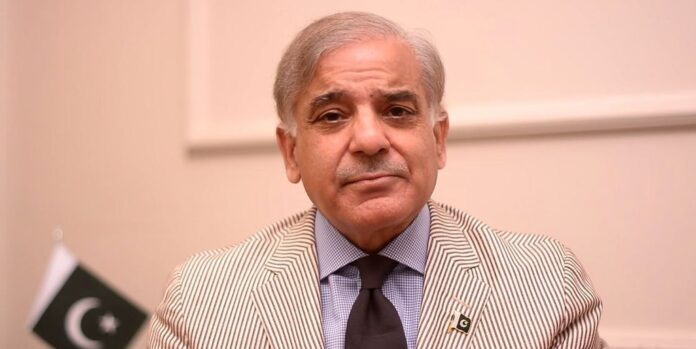Prime Minister Shehbaz Sharif extends an invitation to JUI-F Chief Maulana Fazlur Rehman for renewed collaboration but faces resistance as Rehman maintains his party’s unchanged stance
\In a recent political development in Pakistan, Prime Minister Shehbaz Sharif has reached out to Maulana Fazlur Rehman, the leader of Jamiat Ulema-e-Islam-Fazl (JUI-F), inviting him to work together once again. The meeting, which took place at Rehman’s residence in Islamabad, highlighted Sharif’s desire to rekindle past political alliances.
During the visit, PM Sharif expressed a strong interest in rekindling the collaborative spirit that previously existed between their parties. “We want to work together again, just like we did in the past,” Sharif said, emphasizing his request for Rehman’s guidance and cooperation.
Embed from Getty ImagesDespite the cordial tone of the meeting, Maulana Fazlur Rehman responded with a firm stance, stating that his party’s position remains unchanged. “We are where we were in the past, you have changed your path,” Rehman remarked, reflecting his reluctance to engage in a renewed partnership under the current circumstances.
The meeting between Sharif and Rehman is part of a broader context of political maneuvering in Pakistan. On August 24, former President Asif Ali Zardari also met with Rehman, suggesting an ongoing interest in seeking political unity and cooperation. Additionally, a delegation from Pakistan Tehreek-e-Insaf (PTI) approached Rehman on August 23, expressing a desire to mend differences and explore collaborative opportunities.
Reports indicate that both the PTI and JUI-F are contemplating the formation of committees to facilitate joint efforts. The PTI delegation is reportedly keen on in-house cooperation within the Parliament, believing that a united front could challenge the current government effectively.
Analysis
Political: The outreach from PM Shehbaz Sharif to Maulana Fazlur Rehman signifies a strategic attempt to consolidate political alliances amidst a shifting landscape. Sharif’s move underscores the need for coalition-building and reflects the challenges of navigating complex political dynamics. Rehman’s resistance highlights the difficulties in achieving political unity and the potential barriers to collaborative governance.
Social: The political manoeuvring between major parties and leaders in Pakistan reflects broader societal tensions and the quest for political stability. The emphasis on collaboration suggests an attempt to address public concerns about governance and representation, though the differing stances of key leaders illustrate ongoing social and political divides.
Racial: The discussions and political strategies outlined do not directly address racial issues but are indicative of the broader political landscape that affects all demographics within Pakistan. The pursuit of collaboration and coalition-building is a common theme in diverse societies seeking to manage internal divisions and promote inclusivity.
Gender: The focus of the meetings and political discussions is primarily on political strategy and alliances, with no specific mention of gender-related issues. However, the outcome of these negotiations could indirectly influence gender representation and policy decisions within the government.
Economic: The potential collaboration between parties could have implications for economic policies and governance. Political stability and effective coalition-building may impact economic decision-making and the implementation of policies affecting various sectors of the economy.
